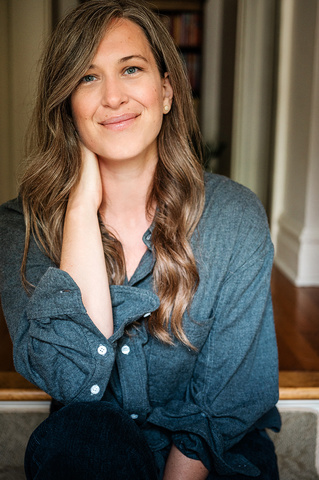
Each semester, the Writing University hosts the 5Q Interview series with authors from the University of Iowa Press. We sit down with UI Press authors to ask about their work, their process, their reading lists and events. Today we are speaking with Nina Lohman, the author of The Body Alone (University of Iowa Press, 2024)
Nina Lohman (she/her) is the author of The Body Alone (University of Iowa Press, 2024), a lyrical nonfiction inquiry into the experience, meaning, and articulation of pain. Originally from California, she lives in Iowa City and is the founder and publisher of Brink, a nonprofit, in-print literary journal that champions hybrid work. The Literary Programming Director for the Mission Creek Festival, an annual immersive music and literature festival honoring independent expression, and a graduate of Fuller, she is at work on a micro-essay collection on the subject of release. A 2023 Iowa Artist Fellow, her writing has been supported by The Vermont Studio Center, The Sewanee Writers Conference, and The Iowa Arts Council.
1. Hi Nina! Can you tell us a little bit about your new book The Body Alone?
The Body Alone is a lyrical nonfiction inquiry into the experience, meaning, and articulation of pain, which is something I have lived with for about 17 years. It is a hybrid account that lives mostly in memoir but incorporates research, scholarship, and speculation to examine pain through the lenses of medicine, theology, and philosophy. I believe that broken bodies tell broken stories. Or, they can, at least. Mine does. So this is why I chose to portray the pain experience through a tangled, cyclical narrative of primers, vocabulary lessons, prescriptions, and hypothesized internal monologues. It's an unconventional book that is fractured not for the sake of experimentation but because the story itself demands it.
2. What was the inspiration for this work?
I've lived with a condition called chronic daily headaches--which is exactly what it sounds like--for most of my adult life. About a decade ago, I began writing about my experience mostly because I was searching for catharsis. Several traumatic experiences had occurred to me and my body in settings that were meant to bring healing and relief. I needed a way to work the experience and my thoughts around the trauma out of my body, so I began to write these micro-essays. At first, they were stand-alone scenes. I wrote the moments of trauma until I had this little collection of hurts on a page. I tried squeezing the moments into an essay but they refused to fit together in one space. It took a long time to write this book, and it's been through several iterations over the years, but one thing I knew with confidence from the very beginning is that this story required a truly unconventional form to do the job I needed it to do.
3. Do you have any plans for readings or events for this book, either in person or virtual?
Yes! June 21 @ 7 pm / I'll be reading at Prairie Lights Bookstore. And August 15 @ 7 pm / Reading and Conversation with Rachel Yoder at Sidekick Coffee and Books.
Other readings:
8.9.24, 7:00 PM, Powell's Books, Portland, Oregon
9.14.24, 6:00 PM, Goldspot Brewing Company, Denver, Colorado
9.26.24, 6:30 PM, Beaverdale Books, Des Moines, Iowa
4. What are you reading right now? Any books from other university or independent presses?
I can't put down my UI Press contemporary Lucas Mann's essay collection Attachments. The sincerity with which he writes makes me feel safe. I recently finished Sarah Manguso's Liars and Alphabetical Diaries by Sheila Heti, both of which, like their authors, are exceptional in their own unique way.
5. What is your writing routine? Do you have a daily routine?
I tend to have writing seasons more than I have a daily writing routine. I'm good at carving out chunks of time in my schedule--days, weeks, or sometimes just a full week of mornings--when I have a project or an idea. Extended time like that to think and write works well for me. I have a busy life with a lot of moving pieces, so it's necessary to set aside time (I actually schedule it on my calendar). I collect my words, roving thoughts, and ideas in paper notebooks and those I visit almost daily.
**
Thank you Nina!